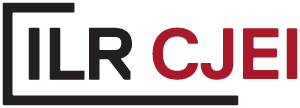What is a Pardon?
Connecticut offers both an "Absolute Pardon" and a "Provisional Pardon."
An “Absolute Pardon,” also known as "expungement," erases your criminal history record. To learn more about Absolute Pardons, see section: Connecticut – Expungement.
A “Provisional Pardon,” also referred to as a "Certificate of Employability," provides relief from barriers to employment or occupational licenses for people with convictions. To learn more about the Certificate of Employability, see section: Connecticut – Certificate of Employability.
How can I get a Pardon Application?
You can apply for a pardon by visiting the Board of Pardons and Paroles ePardon portal at www.ct.gov/bopp
What happens once I apply?
Staff will review your application to ensure it is complete and meets the eligibility requirements. If you are not eligible or your application is incomplete, you will receive an electronic notification. If you are eligible, staff will conduct a background investigation, and you will be contacted for a telephone interview. Once your background check is complete, your application will be scheduled for review by the Board.
How long does the entire Pardons process take?
The entire process can vary depending on the number of applications the Board has received. The Board of Pardons and Paroles, the State Police, the Probation Department, and the Judicial Branch all review your criminal record to make sure that all of your convictions are considered and erased, if the pardon is granted.
You will be electronically notified by the Board after your application has been received and when it is scheduled for review (either Expedited Review or Pre-screen Review). You will also receive electronic notifications informing you of review session results and any important/relevant information.
What is an expedited Pardon, and how do I apply?
If you are convicted of a non-violent offense where there is no victim interest, you may be considered for an Expedited Review. After reviewing your application, the staff will determine whether you will be scheduled for an Expedited Review without a hearing or a standard pre-screen review. If you qualify, you may be granted an absolute Pardon without being required to be present. There is no separate application process.
More Information About Pardons
For more information about pardons, call the Pardons Unit of the Board of Pardons and Paroles at (203) 805-6643.

